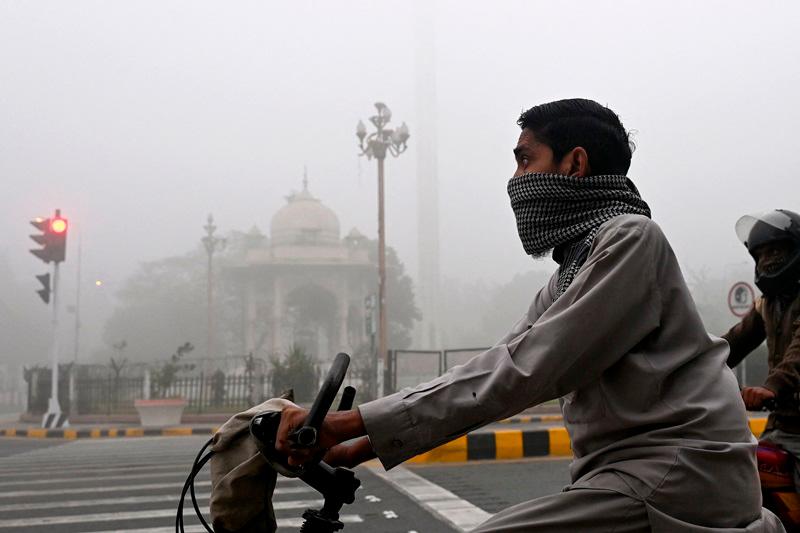ISLAMABAD: Pakistan’s most populous province declared a health emergency in two major cities on Friday, ordering three days of lockdown per week as toxic smog continued to engulf the region, the German news agency dpa reported.
Hospitals were put on high alert, clinics’ opening hours were extended by several hours and medics were ordered to do extra shifts in the cities of Lahore and Multan, regional minister Marriyum Aurangzeb said.
The two cities in the province of Punjab, with a collective population of more than 18 million, were the worse hit by toxic smog that started earlier in the month, Aurangzeb said.
The cities would be under a complete lockdown for Friday, Saturday and Sunday every week, with no outdoor activities allowed except for catering to medical emergencies, the minister added.
The move is part of several measures introduced by the province in recent weeks, including a ban on motorised three-wheel rickshaws, barbecues, restaurants, brick kilns and vehicles with faulty engines to reduce emissions.
Lahore, with a population of more than 13 million, has been the world’s most polluted city for most of this month, with air quality ranked as hazardous.
Several other South Asian cities, including the Indian capital New Delhi and Dhaka in Bangladesh, have faced similar problems.
All primary school pupils in New Delhi are to switch to distance learning for the time being. In addition, almost all construction work in and around the city has been banned and road traffic has been restricted.
After more than two weeks of consistently “very poor” air quality, the situation has worsened further. The authorities in India are now classifying the situation as “serious”.
For several days, a haze of particulate matter, soot, sulphur dioxide and other gases has been hanging over New Delhi. Toxin levels are many times higher than the limits considered acceptable by the World Health Organisation.
Last week, the United Nations warned that more than 11 million children might be at risk of lung conditions in Punjab, while a Pakistani minister said he feared there could be more than 250,000 deaths associated with the toxic air.
Doctors in Lahore say they treat thousands of patients with respiratory complications every day.









